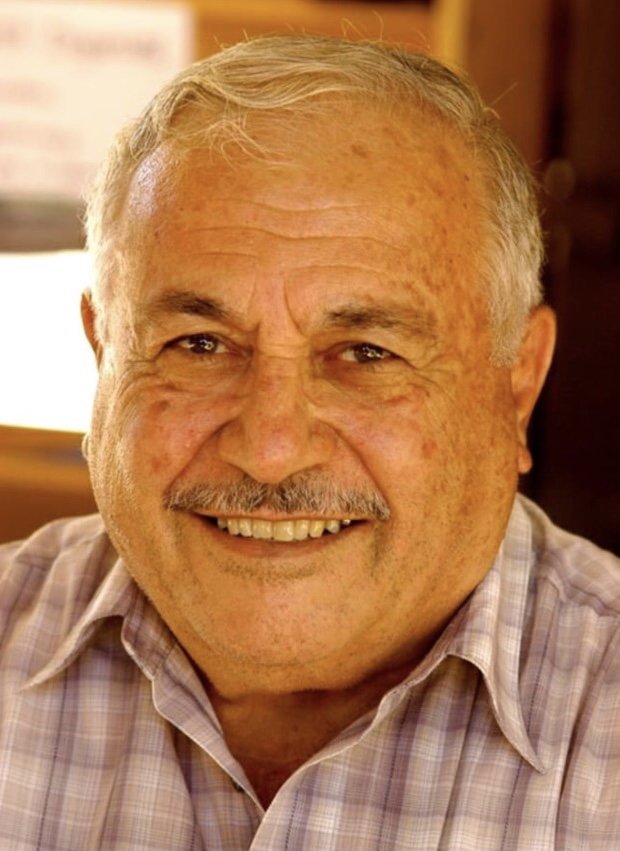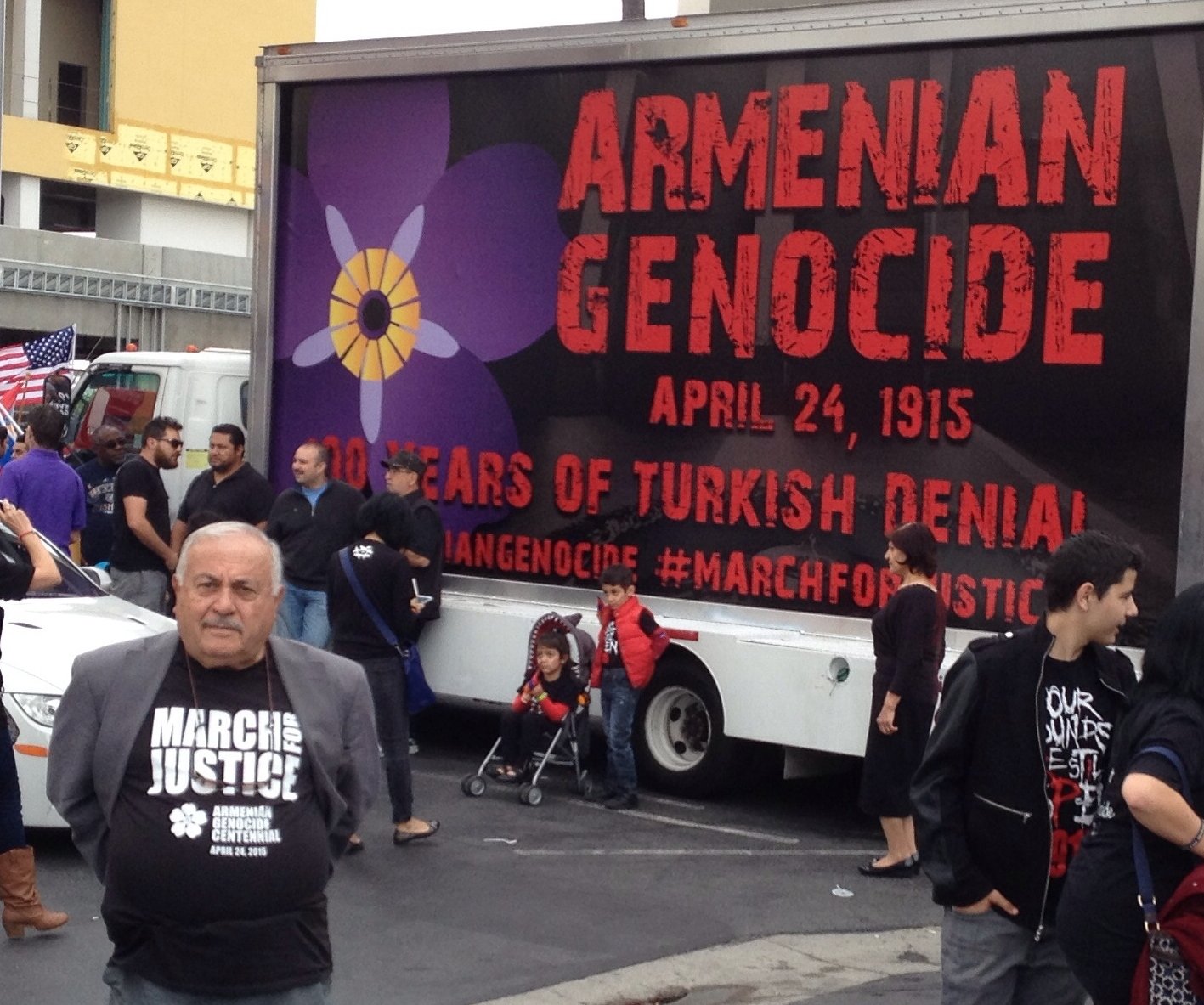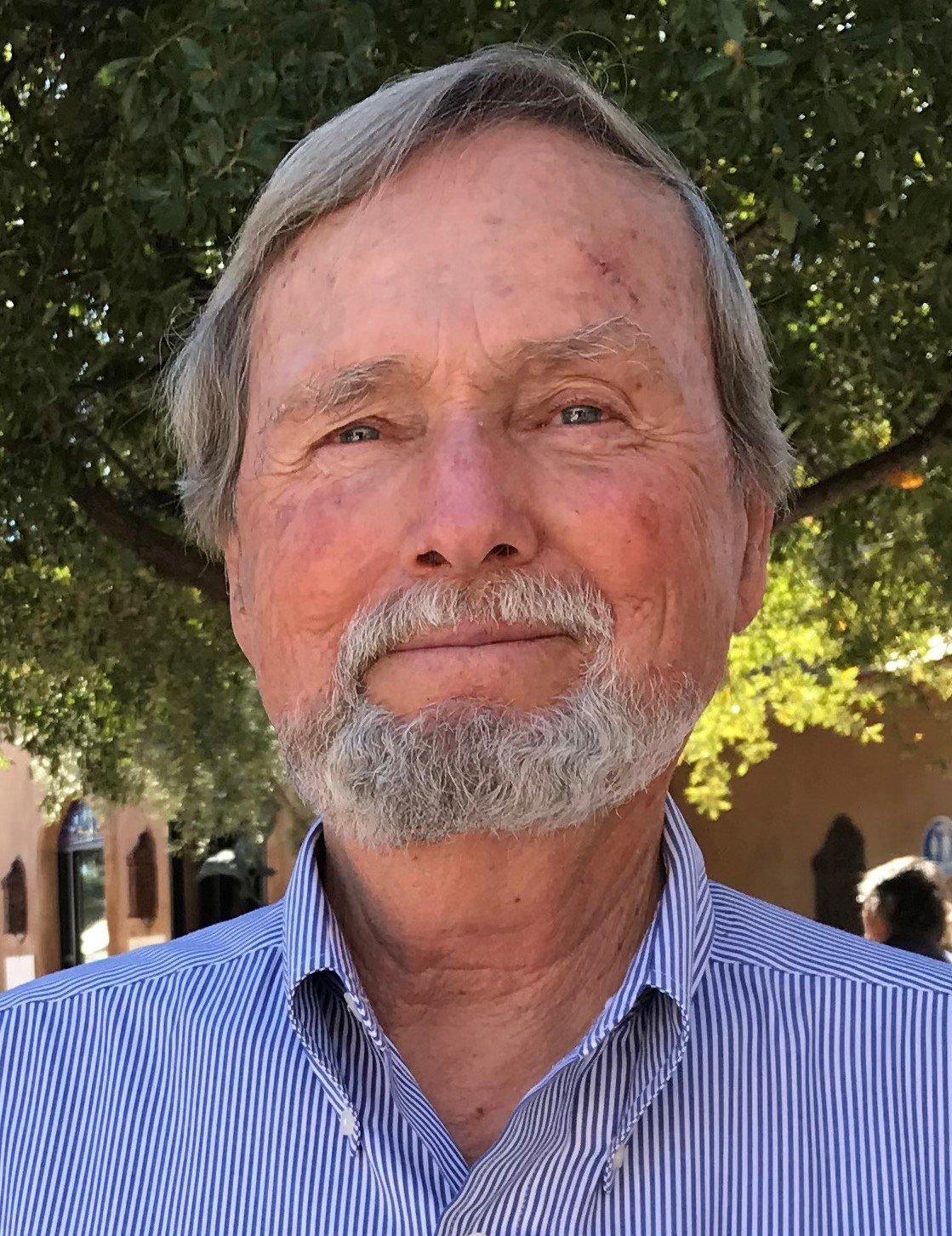
Armenian historian Mardiros “Mardig” Maadenjian died at his home in Pasadena, California on New Year’s Day. He was 82 years old. He is survived by Ardemis—his wife of 60 years—his son Hovsep, his daughters Hourik and Vartenie Maadenjian-Kasparian and her family in Montreal, Canada. Mardig also has three sisters who live in Canada, California and Armenia.
Mardig was the first child of Armenian Genocide survivors, both orphaned on the six-week death march from their town of Chepni in Western Armenia to Syria in 1915. His father Hovsep and his mother Varteni Sarian lost their entire families during the massacre. They ended up in orphanages in Lebanon and did not meet until their late teens.
After a career as a surveyor, Mardig emigrated with his widowed mother and his family to the US in 1986. He settled in Pasadena, California where he served as the editor of an Armenian-English publication for five years. His multilingual skills were prodigious; he could read, write and converse in seven languages, including Arabic and Turkish, and authored books in both Armenian and English. In his later years, he worked as a librarian.
It wasn’t until his mother passed away in 2001 that he became compelled to tell the story of the Genocide and reveal the bloody pogrom of the Turkish government. His mother never revealed the horrors she had lived through in 1915; she felt they were too awful to ever talk about. Once, while being interviewed on camera by history students from the University of California, Los Angeles (UCLA), she provided some details, but never really shared them with her children. Later, the video did inspire Mardig to research and write her story.
Driven by a visceral urge, Mardig spent 12 years and $40,000 traveling the world searching for survivors or their children he could interview. He retraced the entire path of the death march traversed by the citizens of Chepni and flew as far away as Tahiti and France to track down scattered Armenians. The impressive result, among his other books, is a revealing, detailed trilogy entitled Ravished Paradise. They now stand as Mardig’s legacy, a stark blend of history and painful personal memories.
Ravished Paradise: Forced March to Nothingness is Volume I, running from the fall of Cilicia to Muslims in 1375, through World War I and the Genocide of 1915, to the early 1920s with survivors in Lebanon. Be warned, the brutality of the atrocities is graphic. In her 2019 Armenian Weekly book review, Lucine Kasbarian writes, “In speaking of the savagery of genocide, Madenjian does not sugarcoat his words…” Chairman of the US House of Representatives Intelligence Committee Adam Schiff says, “His book makes an important contribution towards the scholarship of the genocide and provides an intimate look at this dark chapter in human history.” Kirkus Reviews lauded the work, “The fight to have the Armenian Genocide recognized as such continues, and this powerful work will undoubtedly help to further the cause.” This title won first place in the history category of the annual Hollywood Book Festival in 2016. Initial copies of Ravished Paradise, distributed by Baker and Taylor, were snapped up by librarians at Harvard, UC Berkeley, UCLA, Texas and other universities.
Reclaiming Ravished Paradise: Armenian Genocide Aftermath comprises Volume II and covers World War II, survivors’ tough lives in Lebanon and the longing to return to their homeland. His father Hovsep meets his bride-to-be Varteni. They marry, and after two miscarriages Mardig is born. The difficulties of refugees in Beirut envelop the budding family even though Hovsep is a leader in the community. Armenia achieves independence from France, but a happy homecoming is not guaranteed. Kirkus Reviews reports, “Madenjian always expertly catalogs the aching desire of the Armenian diaspora to return home, as well as its diminishing likelihood; he also addresses their demand that their brutal mistreatment by Turkey be properly acknowledged, if not redressed. His command of the historical record is extraordinary…” This title also was recognized by the Hollywood Book Festival in 2017.
Quest for Ravished Paradise, Volume III narrates Mardig’s return to his grandparents’ village of Chepni, now inside Turkey, in 2007. Unlikely as it sounds, he is welcomed by the Turkish mayor of the town who puts him up in his home. The purpose of the trip is to retrace the route of the death march and match the sites with the stories he has already recorded, but he is frightened when he reads that Christians are still being murdered. The book is interwoven again with historical references as he drives cross country with the mayor’s son. The power of the book lies in the reactions of the people who meet him, 93 years after every Armenian was forcibly taken away; some folks are startled to see one still alive, as if he were a ghost from the past.
His daughter Hourik attests, “I had the best dad anyone could ever ask for.”
When he died, Mardig was preparing a 550-page manuscript of Quest for Justice for publication. This is his English translation of Call of Laborers, a popular novel by Khachig Tashdents published in Armenian in 1972. The family plans to publish it this year.
Prior to his death, Mardig became highly perturbed by the news of the invasion of Artsakh. With his intimate knowledge of Armenian history, he saw it as a modern-day extension of the 1915 Genocide, funded and directed by the Turks. He couldn’t sleep or eat properly and was consumed by frustrated rage. It may have contributed to his untimely death.
Funeral services for Mardiros Maadenjian will be held on January 26, 2021 at St. Gregory Armenian Catholic Cathedral in Glendale, California followed by interment at Forest Lawn Hollywood Hills. He will be missed, but his literary legacy will live on, a timeless monument of dedication to Armenia and all Armenians.

For questions, please contact armenianhistorybooks@yahoo.com.



Aside from his extraordinary accomplishments and his passion for justice, “Mardy,” as we called him, was a loving and gentle-hearted man who expressed a moving tenderness towards children, adults and strangers alike. He will be deeply missed by those of us who loved him. Heart-felt condolences to his family. A terrible loss — all who knew him, cherished his deep and abiding humanity.